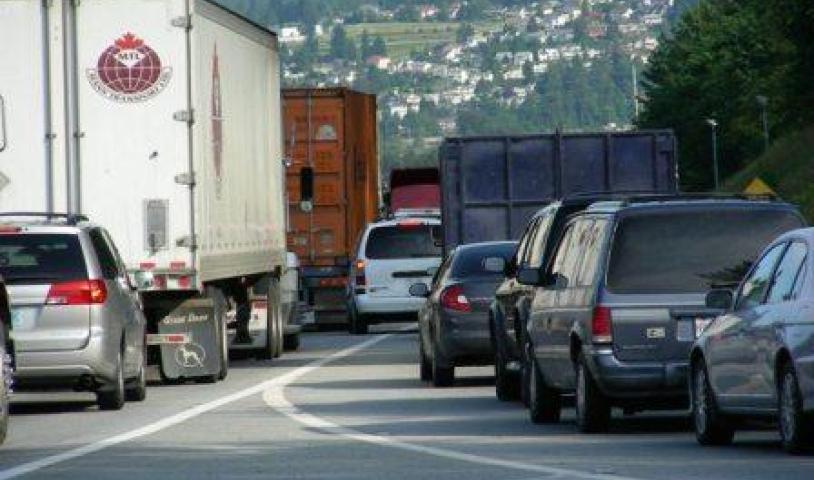Urban sprawl no fun for kids, reports say
Thursday, October 29, 2009
Children can't gain sense of independence or get enough exercise in today's cities, they conclude
Kids these days: they rarely walk anywhere. They don't ride bikes, they don't play outside -- not like they used to, anyway. But can we blame them?
Not according to two new studies released by the Vanier Institute of the Family, a charitable Ottawa-based organization.
"The way that cities have evolved has been rather wrong-headed," said Katherine Scott, director of programs at the institute.
"Lots of it has to do with urban sprawl."
The studies, released Tuesday, chronicle a generation of Canadian youngsters reared primarily in spread-out communities outside the urban centre, where they can expect to be driven anywhere they want to go, even if it's just to a friend's house a few blocks away. The data are based both on literature and empirical research, conducted over the past year, Scott said.
"We have built cities that actively discourage walking and biking among children, certainly when we compare the experiences of today's children and those of their parents," writes Juan Torres, an urban planner and professor at the University of Montreal, in his study titled Children & Cities: Planning to Grow Together. Aside from being environmentally problematic, urban sprawl has also taken its toll on the bodies and minds of children, Torres said.
"The biggest problem presented in the report is the fact that cities are being planned especially for cars and for adults," he said. "This is an important issue because alternative mobility is part of the things that children need in order to develop properly. Not only in terms of obesity and this problem of public health -- that, of course, is deeply related with physical activity and the fact that children don't walk as much as before -- but oftentimes of personal development."
Children gain a sense of independence and can better understand the concept of common space when they can navigate themselves outside, he said.
A second report, Caution! Kids at Play?, written by psychology student Belinda Boekhoven from Carleton University in Ottawa, finds that a decline in unstructured playtime and outdoor space in cities, also related to urbanization, can affect a child's self-motivation and self-reliance.
While organized activities are good, children need unstructured outdoor time -- made difficult by an increasing car-reliant culture -- for proper development, Scott said.
Scott said cities should start consulting with kids about what they want from their neighbourhoods -- improved public transit, closer schools, more accessible communities -- "so people aren't forced to travel long distances to access food and basic necessities."
Programs such as UNICEF's Child Friendly Cities, which consult with youth about planning and business initiatives, are offered in Ottawa, Calgary and Saskatoon.
© Copyright (c) The Vancouver Sun
http://www.vancouversun.com/Urban+sprawl+kids+reports/2153761/story.html
Kids these days: they rarely walk anywhere. They don't ride bikes, they don't play outside -- not like they used to, anyway. But can we blame them?
Not according to two new studies released by the Vanier Institute of the Family, a charitable Ottawa-based organization.
"The way that cities have evolved has been rather wrong-headed," said Katherine Scott, director of programs at the institute.
"Lots of it has to do with urban sprawl."
The studies, released Tuesday, chronicle a generation of Canadian youngsters reared primarily in spread-out communities outside the urban centre, where they can expect to be driven anywhere they want to go, even if it's just to a friend's house a few blocks away. The data are based both on literature and empirical research, conducted over the past year, Scott said.
"We have built cities that actively discourage walking and biking among children, certainly when we compare the experiences of today's children and those of their parents," writes Juan Torres, an urban planner and professor at the University of Montreal, in his study titled Children & Cities: Planning to Grow Together. Aside from being environmentally problematic, urban sprawl has also taken its toll on the bodies and minds of children, Torres said.
"The biggest problem presented in the report is the fact that cities are being planned especially for cars and for adults," he said. "This is an important issue because alternative mobility is part of the things that children need in order to develop properly. Not only in terms of obesity and this problem of public health -- that, of course, is deeply related with physical activity and the fact that children don't walk as much as before -- but oftentimes of personal development."
Children gain a sense of independence and can better understand the concept of common space when they can navigate themselves outside, he said.
A second report, Caution! Kids at Play?, written by psychology student Belinda Boekhoven from Carleton University in Ottawa, finds that a decline in unstructured playtime and outdoor space in cities, also related to urbanization, can affect a child's self-motivation and self-reliance.
While organized activities are good, children need unstructured outdoor time -- made difficult by an increasing car-reliant culture -- for proper development, Scott said.
Scott said cities should start consulting with kids about what they want from their neighbourhoods -- improved public transit, closer schools, more accessible communities -- "so people aren't forced to travel long distances to access food and basic necessities."
Programs such as UNICEF's Child Friendly Cities, which consult with youth about planning and business initiatives, are offered in Ottawa, Calgary and Saskatoon.
© Copyright (c) The Vancouver Sun
http://www.vancouversun.com/Urban+sprawl+kids+reports/2153761/story.html
